HOWARD S. BECKER is the author of several books, including Writing for Social Scientists, Telling About Society, Tricks of the Trade, and Art Worlds. He currently lives and works in San Francisco.
The University of Chicago Press, Chicago 60637
The University of Chicago Press, Ltd., London
2014 by The University of Chicago
All rights reserved. Published 2014.
Printed in the United States of America
23 22 21 20 19 18 17 16 15 14 1 2 3 4 5
ISBN-13: 978-0-226-16635-3 (cloth)
ISBN-13: 978-0-226-16649-0 (paper)
ISBN-13: 978-0-226-16652-0 (e-book)
DOI: 10.7208/chicago/9780226166520.001.0001
Becker, Howard Saul, 1928 author.
What about Mozart? What about murder? : reasoning from cases / Howard S. Becker.
pages cm
Includes bibliographical references and index.
ISBN 978-0-226-16635-3 (cloth : alkaline paper) ISBN 978-0-226-16649-0 (paperback : alkaline paper) ISBN 978-0-226-16652-0 (e-book) 1. Sociology Methodology. 2. Case-based reasoning. I. Title.
HM511.B435 2014
301.01dc23
2013048791
 This paper meets the requirements of ANSI/NISO Z39.48-1992 (Permanence of Paper).
This paper meets the requirements of ANSI/NISO Z39.48-1992 (Permanence of Paper).
What About Mozart?
What About Murder?
REASONING FROM CASES
HOWARD S. BECKER
The University of Chicago Press
Chicago and London
To the memory of
STAN COHEN,
LEIGH STAR, and
GILBERTO VELHO,
old friends and
intellectual companions
Some books are premeditated, others not. This one has grown by itself and discovered by its own movement its form and its end, constantly baffling in the course of its growth the intentions that I naively strove, again and again mistaking a branch or twig for a stem, to impose upon it.
MARC FUMAROLI, When the World Spoke French (translated by Richard Howard)
Contents
I have been thinking about these topics ever since I started studying sociology at the University of Chicago in the 1940s. I could not in any reasonable way thank all the people who helped shape my thinking over all these years, so I wont try. Some of my debts are obvious in the references and remarks in the text. Those that arent recognized therewell, just know that Im grateful even to the people whose help I dont remember.
I am, however, very mindful of what my long friendship and professional association with Douglas Mitchell has done for me in such a variety of ways. So, one more once, thanks, Doug.
Dianne Hagaman and I share our lives and I know how lucky I am to have that life with her. She read every word of this book and helped me in more ways than I can say.
Im grateful for Matt Averys laid-back design, which welcomes readers and makes them at home in my world.
Donald Westlakes novels helped me finish this book. In troubled moments, I turned to them for solace and refreshment.
Ive been writing about these topics for at least thirty years, often for special occasions. Portions of the following publications have been altered to a greater or lesser degree for inclusion in this book.
Distributing Modern Art, New Art Examiner, December 1983, 56.
E di Mozart che ne dici? E dellomicidio? in Rassegna Italiana di Sociologia 44, no. 4 (OctoberDecember 2003): 48392. Reprinted with the permission of the publisher, Il Mulino.
History, Culture, and Subjective Experience: An Exploration of the Social Bases of Drug-Induced Experiences, Journal of Health and Social Behavior 8 (September 1967): 16376.
How Much Is Enough? originally published in Public Culture 25, no. 3 (2013): 37586. Reprinted with the permission of the publisher, Duke University Press.
How We Deal with the People We Study, in Crime, Social Control, and Human Rights: From Moral Panics to Denial: Essays in Honour of Stanley Cohen, ed. Christine Chinkin, David Downes, Conor Gearty, and Paul Rock (Cullompton, UK: Willan, 2007). Reprinted with the permission of the publisher.
La Confusion de Valeurs, in Lart de la recherche: Melanges, ed. Pierre-Michel Menger and Jean-Claude Passeron, 1128 (Paris: La Documentation Franaise, 1994). Reprinted with the permission of the publisher.
The Lay Referral System: The Problem of Professional Power, Knowledge, Work, and Society 4, no. 2 (2006): 6376. Editions lHarmattan. Reprinted with the permission of the publisher.
Lessons from the Master, Everett C. Hughes, Sociologica 2 (2010): 111. Reprinted with the permission of the publisher, Il Mulino.
The Power of Inertia, Qualitative Sociology 18 (1995): 3019.
First Look
After the Civil War in the United States, after Abraham Lincoln proclaimed the emancipation of black slaves and the Congress and the several states passed the Fourteenth Amendment to the Constitution, guaranteeing full civil rights to all Americans, regardless of raceafter those things happened, as soon as African Americans were able to vote, they voted overwhelmingly for candidates of the Republican Party and continued to vote that way for many years. Everyone knew the reason: Abraham Lincoln had been a Republican, and the Democrats had opposed him and his forward-looking policies with respect to race, so no African American person in his (women didnt have the vote for a lot of this time) right mind would vote otherwise. That relationship between race and voting for Republicans persisted for a long time. Until it didnt.
Until Franklin D. Roosevelt brought the Democratic party to power in 1932 and kept it there long enough to pass major legislation that changed the social and economic position of poorer people, a group that included most black citizens. The resulting relationship between race and voting for Democrats has persisted for a long time and looks as if it will be as permanent as the relationship between race and voting Republican once looked. Or will be until it isnt.
Similarly, after the postWorld War II boom subsided, the United States changed in many ways. Factory and other blue-collar workers, who Roosevelt had also converted into persistent Democratic voters, stopped voting for the party in such large numbers, and the relation between class and party, which had seemed so permanent, stopped being so, and in a few years blue-collar voters started voting Republican in large numbers and the Reagan years began.
These correlations exhibited all the strength anyone could require to use them as building blocks of sociological thinking. But they disappeared and their opposites replaced them in a relatively short time. Were the research methods and theoretical strategies that produced those so-quickly falsified causal connections wrong? Were political scientists using bad data or faulty analytic techniques? More likely, were these supposedly invincible conclusions about race and class and voting so tied to historical circumstances that you couldnt be sure their validity would last until the next election? Was there something wrong with the way of thinking that supposed that specific, for the most part isolated, facts about people could predict with such certainty what they would do in a specific situation like an election?
Yes. Something was wrong. I think about these things because, as a working social scientist, doing research on specific questions that interest me and I hope will interest others, they bring up practical problems I have to solve. (Discussion of related, more abstract questions relevant to the philosophy of science, epistemology, or more abstract versions of sociological theory can easily be found elsewhere, for instance Hedstrm and Swedberg 1998; Hedstrm and Ylikoski 2010; Hedstrm and Bearman 2009; and Ragin 1987). Many things that I study change over timepeoples experiences with drugs, for instance, which I take up in , or how ordinary musicians, the kind who play in bars and for parties, can play together competently without any written music before them or any prior rehearsal (Faulkner and Becker 2009)and I study them in an inclusive way, trying to learn as much as I can about what affects what Im interested in, seeking the detailed understanding of social phenomena that results from studying them close up, finding out as much as I can about them. Close observation invariably shows that, even in the most ordinary situations, more than a few easily measured variables are at work and that everything in the situation has some effect on what happens next. If any one of those things isnt there or, better put, is there in a different degree or in a different form, the result (the next events that happen) will differ. As a corollary, everything left out of the analysis or datagathering, perhaps because you arent aware its present, perhaps because its too hard to find out about, let alone measure, is still there, at work, having its effects. I want to avoid the fate of researchers who relied too heavily on a relatively few easily observed facts to do their explanatory work, so I have to not only learn about all these other elements (or variables; the name isnt important) but incorporate them, systematically, into my explanations of what Ive studied.
Next page
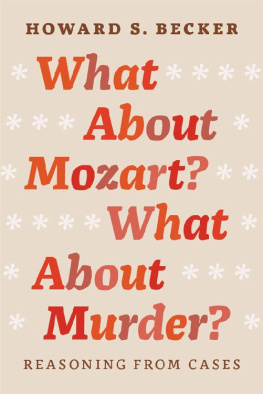

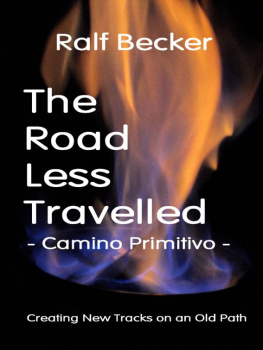

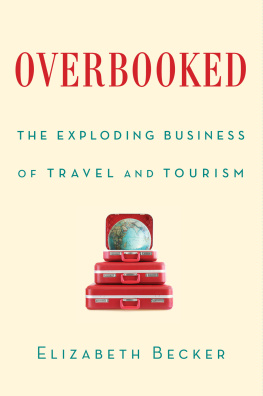

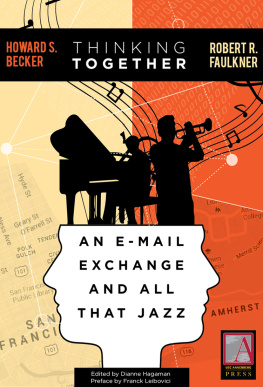
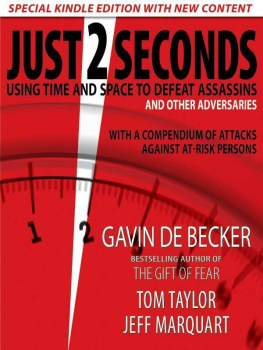
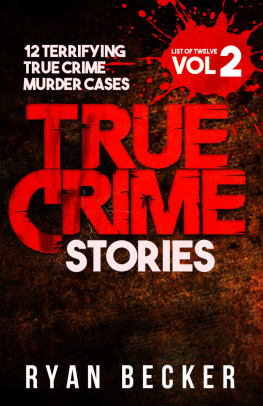

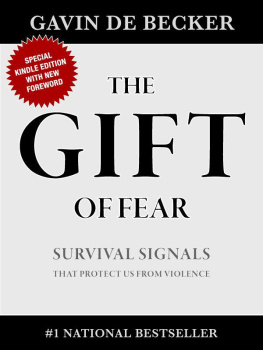
 This paper meets the requirements of ANSI/NISO Z39.48-1992 (Permanence of Paper).
This paper meets the requirements of ANSI/NISO Z39.48-1992 (Permanence of Paper).